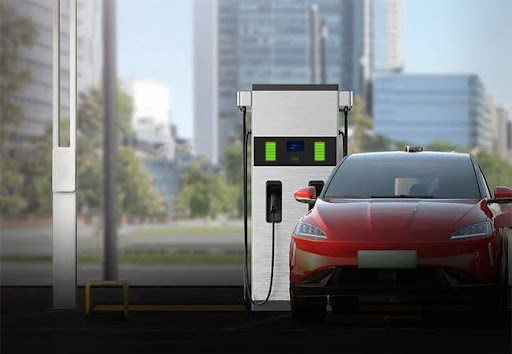How to choose the right electric vehicle charger for your parking lot

The traditional automotive industry is undergoing a huge shift, with electric vehicles (EVs) becoming more prevalent on the roads as an environmentally friendly transport facility. According to a Global Market Insights report, the U.S. EV market will be worth $215.7 billion in 2032. The surge in the number of EVs has responded to the demand for EV charging infrastructure. Public EV chargers are increasingly valued by governments and parking operators as the key to EV charging infrastructure. Investing in public EV chargers can increase revenue and promote environmental sustainability. But, it also requires EV charger manufacturers to come up with more effective EV charging solutions. This blog will delve into the right EV charger for car park operators.
Necessary preparation for choosing an EV charger
Understanding user needs, different EV chargers’ charging speeds, and installation costs on choosing the right EV charger will help you choose the right EV charger, let’s explore what preparations you need to make before buying an EV charger.
- Understand the user needs.
To choose the right EV charger, you must first delve into the charging needs of user groups. There is no better decision than to carry out a market research initiative. By investigating mainstream EV types EV owners’ dwell time, and charging needs, car park operators can plan a detailed commercial car park, such as car park siting, car park service facilities, number of EV chargers, etc. to meet user expectations.
- Consider the charging speed of EVSE:
Charging speed is a key factor in the successful operation of commercial car parks for commercial car parks. EV chargers are mainly categorized into AC EV chargers (level 1, and level 2 EV chargers) and DC EV chargers. While DC fast chargers are best suited for short parking periods, slow EV chargers (AC) are beneficial for users with long parking periods.
Alternating current (AC) charger:
Suitable for most EV models and meets basic charging requirements. The charging interface is usually Type 2 (IEC 62196) or SAE J1772 standard. Level 2 EV chargers are cheaper than DC EV chargers, striking a balance between charging speed and practicality.
However, the charging speed is relatively slow and not suitable for application scenarios where fast charging is urgently needed. Typically between 10 and 20 kilowatt hours (kWh) per hour. Therefore, it is suitable for places where long parking time is required, such as shopping centers, restaurants, and hotels.
Direct current (DC) chargers:
DC EV chargers have faster charging speeds, usually above 50 kilowatt-hours (kWh) per hour, and can even reach above 150 kWh, making them suitable for use in EVs that require fast charging. The interface standard for DC EV chargers is different from that of AC EV chargers, e.g., Tesla adopts the Supercharger, while other brands usually adopt the CHAdeMO or CCS standard.
DC EV charging equipment is suitable for places where you need to stop for a short period of time but need to get a large amount of electricity quickly, such as petrol stations and high-speed service areas, but at a higher cost.
There are many types of EV chargers, which offer different charging speeds. For specific product details, consult a reliable EV charger producer.
- Cost and Maintenance of Electric Vehicle Chargers.
The cost of investment and post-maintenance of electric car charging equipment can be a huge expense, so it is important to choose a cost-effective commercial electric vehicle charging solution.
The installation cost of an EV charging station depends on factors such as the type of EV charger, electrical infrastructure upgrades, and the complexity of the EV charger installation. While Level 2 commercial EV chargers are relatively cheaper, Level 3 EV chargers that offer faster charging speeds may require additional investment. Consultation with an experienced electrician and specialist EV charger distributor is essential for an accurate cost estimate!
Parking Facility Electric Vehicle Charging Solutions
Installing electric vehicle chargers not only meets market demand, but also helps to enhance corporate image, expand the customer base, and meet the growing demand for sustainable mobility – a strategic move with a high return on investment that benefits society. As companies move through this decision-making process, Joint EV Charger has emerged as a reliable partner in providing cutting-edge parking facility EV charging solutions.
Become a partner with Joint EV Charger Company:
As a leading EV charger manufacturer and distributor, Joint EV Charger Company specializes in providing tailored commercial EV charging solutions to meet a wide range of corporate needs from ODM services to wholesale distribution.
Conclusion:
In conclusion, choosing an EV charger for a parking facility is a multifaceted process. By considering user needs, charging speeds, and other factors such as EVSE type and installation costs, car park properties can choose a budget-friendly business EV charging solution. By becoming a partner with Joint, car park operators can not only meet their current needs but also future-proof their charging infrastructure.